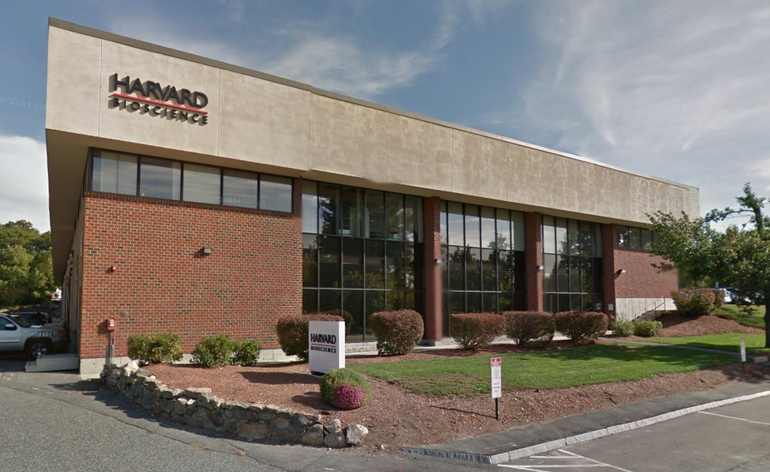Harvard Bioscience initially fell out of Nasdaq compliance in April.
Already a Subscriber? Log in
Get Instant Access to This Article
Subscribe to Worcester Business Journal and get immediate access to all of our subscriber-only content and much more.
- Critical Central Massachusetts business news updated daily.
- Immediate access to all subscriber-only content on our website.
- Bi-weekly print or digital editions of our award-winning publication.
- Special bonus issues like the WBJ Book of Lists.
- Exclusive ticket prize draws for our in-person events.
Click here to purchase a paywall bypass link for this article.
Half a year after Harvard Bioscience received notice it had fallen out of compliance with Nasdaq stock exchange requirements, the Holliston-based biotech firm has been granted an extra 180 days to meet the market’s trading criteria.
Harvard Bioscience initially fell out of Nasdaq compliance in April after failing to maintain a minimum bid price of $1 per share for 30 consecutive business days between Feb. 21 and April 3, according to an April 10 filing with the U.S. Securities and Exchange Commission.
At the time, Nasdaq had afforded Harvard Bioscience 180 days, or until Wednesday, to regain compliance by sustaining a closing bid price of at least $1 per share for at least 10 consecutive business days.
By Tuesday, Harvard Bioscience had not met this minimum requirement and was notified by the Nasdaq’s listing qualifications department that the firm had been afforded an additional 180 days, or until March 30, to regain compliance, according to an SEC filing on Friday.
Harvard Bioscience did not reply to WBJ’s request for comment.
The company became eligible for this extension, referred to as a second compliance period, by continuing to meet all other Nasdaq listed requirements and by applying to have its common stock transition from trading on the Nasdaq Global Market to its lower-tiered Capital Market.
The transfer application was approved and put into effect Friday morning.
Harvard Bioscience will be considered back in Nasdaq compliance if it maintains the minimum $1 bid price for at least 10 consecutive business days at any time before March 30.
However, if the company is not able to meet this requirement, it will receive notice that its stock will be delisted, a determination Harvard Bioscience will have the opportunity to appeal.
As of Friday morning, Harvard Bioscience’s stock was being traded on Nasdaq for 46 cents per share.
Mica Kanner-Mascolo is a staff writer at Worcester Business Journal, who primarily covers the healthcare and diversity, equity, and inclusion industries.

